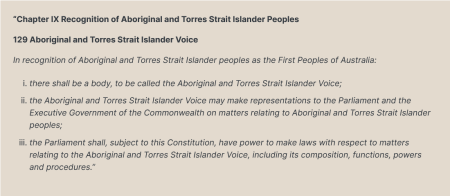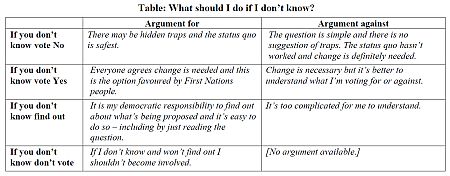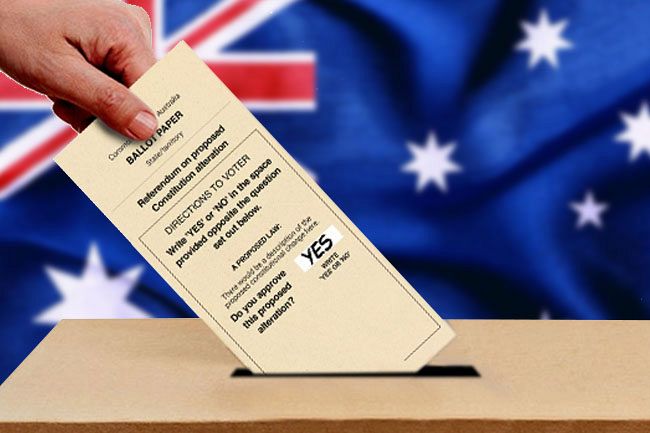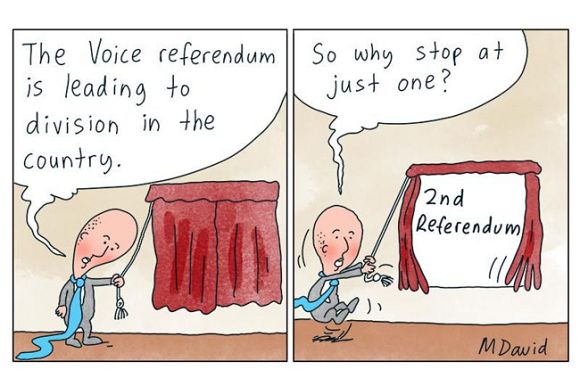With so many Australians still undecided and falling for misinformation, it's an important time to know what we're voting for in the Voice Referendum, writes Dr Paul Komesaroff.
ON 14 OCTOBER, voters will be asked whether they agree to add a new section to the Constitution as follows:

In its advice to voters, the “No” campaign has adopted the slogan, ‘If you don’t know, vote “No”’. While it is no doubt assumed that the logic of this suggestion is self-evident, in reality, this is not the case. In fact, there are four possible answers to the question: “What should I do if I don’t know?”
These are: “Vote ‘No’”; “vote ‘Yes’”; “find out”; and “don’t vote”. Each has arguments for and against it, which we here examine in turn.
“If you don’t know, vote ‘No’”
Argument for: There may be hidden traps in the question above which I do not understand, so it is safer to support the status quo than to change it.
Argument against: The question is simple and worded in a manner that all voters can understand, with no room for confusion or uncertainty. It is generally agreed that the status quo has been unable to address the needs of First Nations Peoples, so cannot stand as a safe default position.
“If you don’t know, vote ‘Yes’”
Argument for: There is an urgent need for change and I should respect the view of the overwhelming majority of First Nations people, which is to support the proposal.
Argument against: I agree that change is necessary, but I prefer to understand what I’m voting for (or against) rather than just following other people.
“If you don’t know, find out”
Argument for: Voters have responsibilities as citizens to understand what they are voting about, whether in a referendum or an election. Because there is a great deal of information readily available, finding out is easy and quick.
Argument against: “I can’t understand complicated things like constitutional changes and am too busy to read the question or the published materials carefully.”
“If you don’t know, don’t vote” (or vote informally to avoid a fine)
Argument for: If I don’t know (and can’t or won’t find out), I should avoid taking either position.
Argument against: [No available argument.]
These arguments are summarised in the following table:

So what should I do?
Most people would agree that the strongest arguments favour “finding out” and that blindly voting “No” or “Yes” is much less compelling. We urge every voter who feels uncertain to consider the arguments for and against the available options and to make their choice accordingly.
Dr Paul Komesaroff is a practising physician and Professor of Medicine at Monash University and Executive Director of the international NGO Global Reconciliation.
Related Articles
- Atlas Network's fossil-fuelled campaign against the Voice
- Referendum’s clear choices on the way Australia should go
- Both major party leaders damaged by Voice Referendum
- Scare campaigns built on lies not policed by the media
- Voice Referendum: Old-fashioned racism driving 'No' campaign
 This work is licensed under a Creative Commons Attribution-NonCommercial-NoDerivs 3.0 Australia License
This work is licensed under a Creative Commons Attribution-NonCommercial-NoDerivs 3.0 Australia License
Support independent journalism Subscribe to IA.











